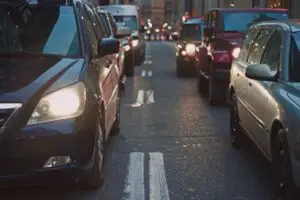
Boston drivers are fully aware of the long commutes throughout the city and extensive rush hour periods we have to suffer through to get to our jobs, schools, and work. These long hours on the road add up in gas costs, vehicle maintenance, lost time, road damage, and, ultimately, stress. In addition, more vehicles on the road means more multi-car accidents, which can be extremely costly for the everyday worker living paycheck to paycheck.
While we understand the major issues associated with long commutes, many may be surprised that our Boston’s commute is considered the worst in the United States, outranking both New York and Los Angeles.
Factors in the Ranking
According to INRIX, a private company that analyzes congestion and traffic patterns across the United States, Boston is the worst congested city in the United States and the ninth worst in the world. The study analyzed traffic patterns between “commute destinations,” which can include downtown areas and major city centers as well as employment areas, and the neighboring community.
For Boston in particular, traveling to and from these commute destinations added up to 149 hours in traffic and a cost of $2,205 per driver. The study also analyzed the “last mile speed,” which refers to the average speed a driver can experience in the last mile of their journey to a commute destination. When looking at Boston, this speed was 12 mph, a snail’s pace for most drivers.
In addition, this is the second time Boston has ranked this high, the first occurring in the 2018 INRIX study. The consistency in Boston’s ranking is based on several factors, including:
- Road design
- Highway capacity
- Age of the roads
- Weather patterns
- Delays from accidents
The last factor is one of the most important. Often times, when a driver comes upon slow traffic on a highway, they will attribute it to an auto accident. These devastating and costly events have serious ramifications on surrounding traffic patterns and are not isolated incidents. However, the relationship between traffic congestion and collisions is more complicated than it first appears.


Give us a call today to discover how we can assist you.
How Congestion Impacts Traffic Collisions
One would assume that having a high congestion rate will lead to more accidents. The more cars on the road, the tighter the freeways are, and the more likely a driver can be rear-ended or be involved in a multi-car accident.
However, congestion can also decrease the accident rate. Slower commutes severely restrict driving speeds and reckless behavior. As such, when drivers are traveling during rush hour, they are less likely to be involved in a serious auto collision, unless they are extremely aggressive with how they change lanes or are tailgating. In contrast, low levels of traffic can lead to an increase in speeding drivers, which are far more likely to be involved in a fatal car accident, according to research by the International Journal of Environmental Research and Public Health.
As such, two scenarios can be occur depending on congestion levels. During high congestion, drivers are more likely to be involved in minor car accidents involving multiple vehicles. However, when traffic congestion is low, single car accidents happen at a higher frequency, many of which are fatal.
Holding Negligent Driver’s Accountable
Ultimately, many accidents come down to human behavior. Whether a driver is commuting at rush hour or during light traffic, they should always obey the rules of the road, follow speed limit, and stay focused on the road. Otherwise, their negligent actions can easily cause a serious auto accident.
If you were injured in a serious auto accident that was someone else’s fault, you are likely feeling the full ramifications of that driver’s poor decisions. You may be tempted to accept a quick and easy settlement offer from the at-fault insurance company, but that offer is likely far too low to cover your medical costs. Instead, contact the Boston car accident attorney at DiBella Law Offices, P.C. We can review your case, determine if the other driver was liable, and pursue proper and fair compensation on your behalf. Call us at (617) 870-0907 to learn what options are available to you.


We are committed to providing valuable information and resources to assist you.




